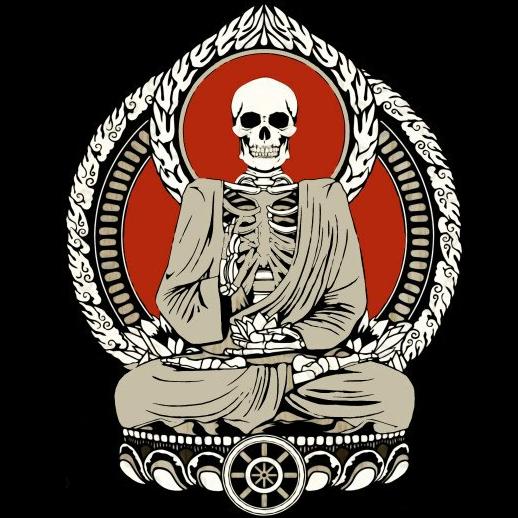Title

Been a Christian for a long time (1989). I’ve consumed copious amounts of ancient mythology and folklore. People who don’t understand that you can read something that challenges your faith and still follow through with better understanding afterwards is the issue. If you read something and it doesn’t make you think deeper about yourself, faith, world, or whatever what’s the point? Those in the church (Christian or not) that tell you that reading something is a “sin” are probably ones that teeter on the edge of losing their grasp as it is and don’t want you doing the same. Most of them can’t explain why it’s so challenging, they just know it’s there.
I deliberately watch atheist videos a lot, lol. Would read dawkins if I cared to read books more.
Christianity IS ancient mythology.
Ipso facto it’s a sin to be a Christian, per Christianity.
But if you apply logic to any of these devoted superstitions none of them make any sense.
Well your logic doesn’t do much to prove your assertion…
I’m never surprised when someone defends religion while making absolutely no sense.
You really made a good point?
You can’t use logic based on a belief and simultaneously write it off as mythology if you want to be logically consistent. You first assert that Christianity is mythology, but then reference Christianity itself to “prove” that people who believe in it are sinners, framing them in terms of the belief that you just asserted was false. Your whole thing is nonsensical.
Watch this:
Christianity is mythology. None of it is real.
Yet.
There are nincompoops who believe it is real.
And one of the things people who believe that silly mythology is that people shouldn’t worship mythologies.
Deal with it, bro.
Religion kills. Science saves.
But only one is easy to learn.
Dude the edgelord routine is brutal
Good point I think? Enjoy pretending to follow Jesus I guess.
It’s a question?
Based on the username and formatting of the title, I’m guessing OP’s native language may be Japanese, where questions are often statement+question word.
Shitsumon desu - It’s a question.
Shitsumon desu ka - Is it a question?
Thanks.
It’s a hobbitses?
Filthy, tricksy hobbitses, they stole our syntaxes
Plenty of writers in the early Christian church continued to draw heavily on Greek and Roman mythology as a source for literary analogies—so a background knowledge of classical mythology is necessary to fully understand foundational Christian literature.
Yeah, but Paul kind of ruined Greece via Thessaloniki and Korinthos. Granted, the social hierarchy around the old gods backed by “the one true God for all” Christian narrative sure made it easy to turn common Greeks against their ancient culture and religion.
And they’ve been doing great ever since! cough, cough
Mind giving some sources? I’m not arguing or disputing you, I’m just interested so I can learn here.
If you have the time, I heavily recommend Center Place as a great source for Christians and Atheists alike who wish to learn about schoolary views on Christianity.
It’s like a free seminar lecture. Here is one about Plato and Christianity:
https://www.youtube.com/watch?v=VLk6sdjAoAo&t=2006
EDIT: My brain somehow went to Greek phylisophy, not mythology. So the above link doesn’t suit the question at all, my apologies. I’ll let it stand non the less, it’s an intresting topic on it’s own.
A source for the ACTUAL question might be this paper The survival of the Greek gods in early Christianity
That video’s position on the stuff in Sirach is actually pretty good
No, although this is a fringe belief among some fringe sects.
I think most Christians just make up whatever they feel ought to be a sin based on the vibe.
Nope! Watching a movie about Thor or something is fine. It only doesn’t work when you begin to worship Thor over God, which breaks the first commandment
Chris’s glorious beard though. How can you not?
Though comically, in Iceland they got the populace to convert to Christianity by saying it was okay to worship Thor in private.
You realize Christianity is not one thing?
It is one thing with a massive amount of variation, like pizza.
Is mormanism the one with pineapples?
Pineapple? That’s a little too spicy for Mormons. Probably mashed potatoes and mayo.
Believe it or not: straight to Hell!
No. but you could losely apply thou shall not worship false gods. However learning, and worshipping are two completely different things.
Christianity was formed long before there was media, so there are no scriptures that prevent you from enjoying media, and last i checked nothing that prevented you from learning.
The sin is saying someone like Donald Trump is Jesus, and worshipping him in your home and the house of god. That’s what’s sending everyone on a first class ticket to hell. You’re cool tho. Coming from a Catholic with a lotta guilt.
Here’s a list of sins with the biblical citations. You tell me if watching zues documentaries is a sin?
by rules that no longer apply maybe, but any rules that may have said that were effectively removed in the new testament in favor of “man just like… try not to be a dick ok?”. currently (bc it was the whole point of the new testament) that’s pretty much the only rule in effect.
My background in is in Islam, not Christianity. This doesn’t answer your question but I hope it is helpful.
Most opinions in Islam are that: it is not a sin to read pagan texts or texts from other religions, but it is highly discouraged for non-experts in Islam, as, for example, it may weaken their belief in Islam. Many Muslim prostelyzers, for example, extensively read non-Islamic texts to help them convert other people to Islam.
However, I think a distinction is usually made between mythical texts and religious texts. Many believe that it is no sin to read Greek mythology because they see them as just fixtional stories, but that it is a sin or it is discourged to read the Torah or the Bible.
Depends on how fundamentalist you are.
Secular person who was formally catholic, so I will come from that perspective, and will for this post assume that the Christian view is correct. (In reality I don’t think it is)
Theologians have realized that people, even before Jesus have been good and have shown wisdom. Even those who were way outside of the Jewish tradition. For example, Aristotle showed prudence, wisdom, and ethics that are in accordance with the will of God.
The question at hand is how and why, if they did not know God?
The answer is that they acted in accordance with the natural law as given by god. Even without knowing god via the sacrifice of Jesus, they approached god in the best way they knew how, by doing their best to realize the natural law which was written by god.
More information on this at this link. I would read the section on Aquinas’ natural law theory.
https://plato.stanford.edu/entries/natural-law-ethics/#NatLawDivPro
How does this apply to watching content about historic and mythological figures? The answer is that, in so much as the content approaches those divine values through the authors seeking to understand and act in accordance with the natural law it is good and just to consume.
This being said these historic figures did not have the true understanding of god brought through the sacrifice of Jesus so that must be kept in mind. So as long as you understand this and the content does not draw you from god it should be good to go.









